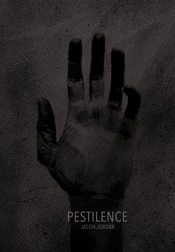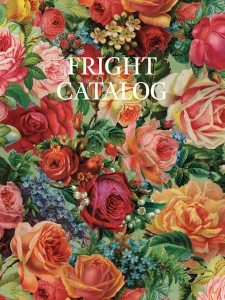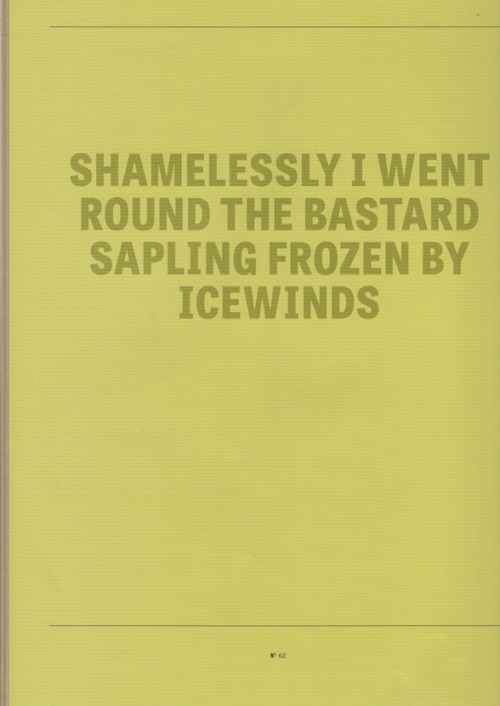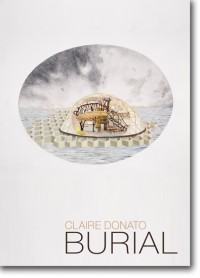
When I Looked At Your Cock My Imagination Died is the title of one of the sections in Ariana Reines’s collection of verse Mercury.
One nighttime, while considering all the boys I had heart-crushing crushes on (like you-know-who and yes-him and obviously-that-one-who-cares-if-he-did-what-he-did) I read this very section of poems for what may just be the one millionth and first time.
The first poem of this section is a letter (maybe it’s one of those electronic letters that all those 20-somethings in Brooklyn send back and forth or maybe it’s the type of letter that wonderful Willa Cather sent her eloquent girlfriend Edith Lewis).
“ariana,” commences the correspondence, “all I can think is the sex. Practice with the butt plug. Wear it around tonight. I want them to double penetrate you.” The boy talks about transferring money into Ariana’s account. He also dispenses further directions:
I want the video to start with you on the phone talking to me on your knees with their cocks touching your face and you looking up into the camera as you talk to me and begin sucking their cocks. When you start fucking I want to be on the speaker phone and jerking off. I want to see everything as they go in and out of you together.
The boy is quite tyrannical, and every worthwhile heart beats boisterously for tyrants, as there’s truth in being controlled and possessed. As the French boy who said 9/11 was symbolic points out, Western culture (i.e America and their ho bags) is nearly omnipresent, and the places where Western culture hasn’t grown its gay garbage — choice Muslim and black countries — there’s not likely to be many Western culture subjects (unless your name is Nicholas D. Kristof). Those who flaunt freedom aren’t free. They are dependents to the unpleasant pragmatic tyranny of America and its ho bags . If America and its ho bags was, perchance, destroyed, they’d be too. Jason Collins, to cite one dependent, wouldn’t be so if the hegemonic culture on earth gave zero craps about an average GLADD boy who can’t play basketball.
So, when Ariana surrenders her agency to this boy, she abandons phoniness as well. Stating that agency is an actuality is similar to stating that chocolate chip cookie dough is downright disgusting — it’s utterly untrue! A long time ago the Marxist boy Louis Althusser’s “moment of interpellation” brought out that bestowing identity is not the act of a single subject. More than one someone is required to be recognized as an entity. In Bodies That Matter, famous girl-boy Judith Butler put Louis’s interpellation in action. A policeman summons a citizen with a “Hey you!” The policeman heeds the “you.” He recognizes that the “you” is entwined with his world. The “you” may reply, but the “you’s” reply is due to the policeman’s summons. If the policeman didn’t say “Hey you!” then the citizen wouldn’t be impelled to speak to him — the citizen wouldn’t be able to utilize his voice. A creature can neither create an identity by his lonesome nor speak for himself on his own. Invariably, he must be recognized by someone not himself, even if that someone is a cuddly, invisible teddy bear.
All of that was completely necessary to convey so that I could confirm that Ariana is biding bon voyage to an idea of no value whatsoever. To sum up, agency is a tricky, corrupt instrument of American hegemony; and America, as Jewish novelist John Updike noted in the 60s, has lost the blessing of God. Ariana, though, has not. The poem proceeding the letter reads: “I want the gold. / Shimmer shimmer shimmer shimmer shimmer.” Since Ariana got to the truth, she shall get her gold too. Truth, says the sensational John Milton, is the foundation of Christianity. In the postlapsiarian planet, truth has been slashed into infinite tiny piece. The commendable Christian’s duty is to discover as many of these pieces as possible. All of this is why Ezekiel’s vision of New Jerusalem is “pure gold like clear glass.” God is there! Where God is, truth is; where truth is, gold (something of supreme value) is. By spotlighting the truth of subjection, Ariana aligns herself with God, truth, and gold.
Also in this section is another prose poem that begins “when i get on your cock like a bag my face is scarred”. Punctuation, paragraph breaks, capital letters — all of these components have been cast aside. Clauses collide into one another, like “i gaze up at the fat man to be reverential and durty none of us has hair i think i look confused so i wet my fat tongue i think exciting thoughts fake nails in clits fake nails in clits fake nails in clits.” First person pronouns are in the same caste as nouns, adjectives, and adverbs. The “i” isn’t capitalized: it’s been toppled (I believe capital letters aren’t pretty in the first place). An upheaval has happened and the words arrive at whiplash speed, like a flood, a plague — a circumstance from the best book ever, The Bible. Both are extreme, and that, according to me, is how things should be.
 Pestilence
Pestilence



 Fright Catalog
Fright Catalog
 Hosni Mubarak
Hosni Mubarak

 Burial
Burial